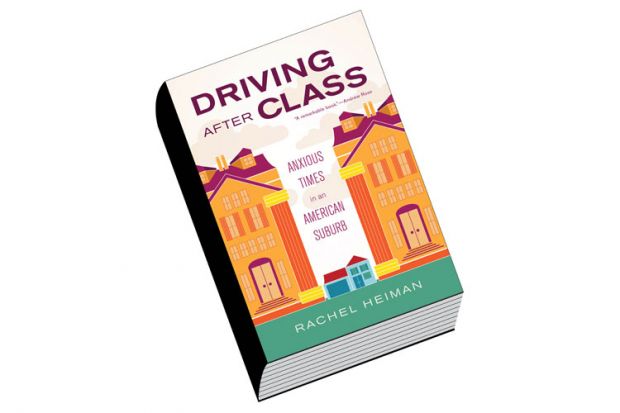The American dream is unachievable. This is the message of anthropologist Rachel Heiman’s study of “anxious times” in the US. Unlike those who argue that growing inequality, dwindling safety nets and a shifting economy make it harder for those at the bottom to get ahead, Heiman argues that the American dream is out of reach even for those who supposedly achieve it. She studies the lives of formerly working-class New Yorkers who left the city for suburban New Jersey and middle-class life. Yet even when they secure the colonial homes and white picket fences emblematic of the American dream, they never feel they have truly “made it”. New and richer families follow the class migrants to the suburbs, building homes that show that other Americans dream bigger and earn more. The middle class then try to keep up with the Joneses – or prevent them from broadcasting their wealth – and in doing so feel insecure about their own achievements. For the new suburban middle class, the American dream never feels like a settled reality.
Achieving the American dream, Heiman shows, is not as simple as acquiring a mid-sized house with a yard. The dream is relative. Comparing themselves to their richer neighbours, the middle class feel insecure. They have SUVs but not Porsches, sizeable homes but not gated mansions. At the same time, the middle class are smug in their assumed power over working-class neighbourhoods nearby. They can feel they have achieved the American dream in one moment, then drive across town and feel it slipping away.
Moreover, it takes constant work to stay in place, and, importantly to Heiman’s respondents, to show others that the American dream has been achieved. Families buy extravagant patio furniture that they invite friends to use, but cannot afford a couch for their living room. They install state of the art showers, but hesitate to use them lest they get streaked. Parents admonish daughters for putting the cheap crystal that they prefer rather than the expensive crystal that connotes taste and wealth on their wedding gift registry. In the suburb that Heiman studies, the American dream is lived out in repeated displays for others, not a sense of security for oneself.
Heiman ascribes the elusiveness of the American dream to neoliberalism’s rise. However, given constant economic changes over the past 100 years, it seems unlikely that anxiety about one’s place in the middle class is new. Nevertheless, privatisation – one of the components of neoliberalism that Heiman emphasises – may well have mattered for her analysis. Whereas ethnographers of the poor can hang out in public spaces, the middle class congregate in private spaces that are walled off to ethnographers. Heiman is not fully able to climb over these walls. As a result, her data are thin. Rather than turning to deep and extensive interviews or finding ways to observe many aspects of the community, she focuses on a single family, a handful of public meetings, stretched metaphors and ambiguous symbols. At times, the paucity of the data also undermines her argument. If the most anxious moments she observed involved removing one’s shoes to keep a white carpet clean or driving an SUV to feel secure on crowded roads, maybe the middle class really has made it.
Jessi Streib is assistant professor of sociology, Duke University, and author of The Power of the Past: Understanding Cross-Class Marriages (2015).
Driving After Class: Anxious Times in an American Suburb
By Rachel Heiman
University of California Press, 312pp, £44.95 and £19.95
ISBN 9780520277748, 7755 and 9780520960312 (e-book)
Published 13 February 2015
POSTSCRIPT:
Review originally published as: Trying to awaken from the dream (18 June 2015)
Register to continue
Why register?
- Registration is free and only takes a moment
- Once registered, you can read 3 articles a month
- Sign up for our newsletter
Subscribe
Or subscribe for unlimited access to:
- Unlimited access to news, views, insights & reviews
- Digital editions
- Digital access to THE’s university and college rankings analysis
Already registered or a current subscriber?
